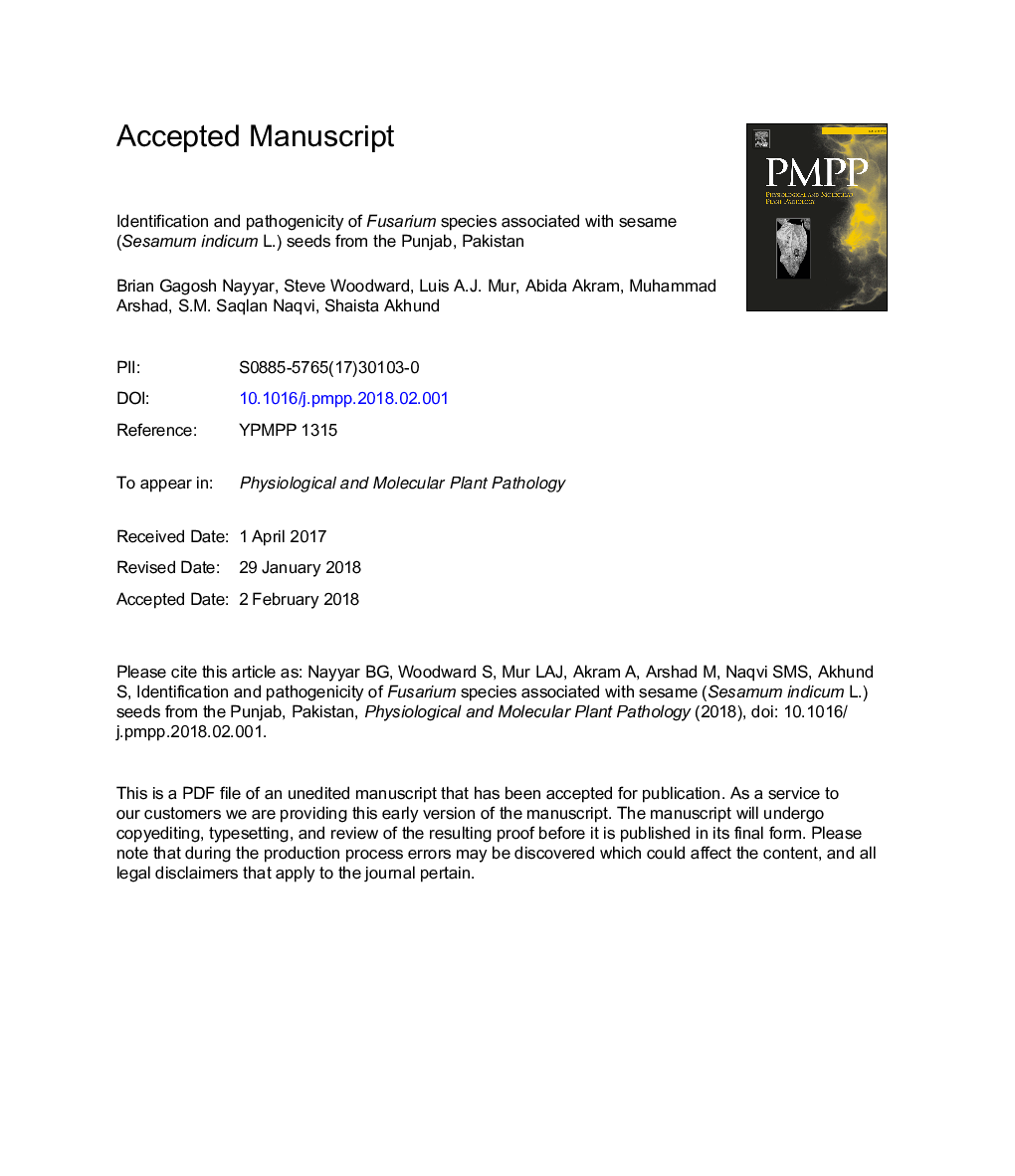| کد مقاله | کد نشریه | سال انتشار | مقاله انگلیسی | نسخه تمام متن |
|---|---|---|---|---|
| 8649222 | 1570837 | 2018 | 32 صفحه PDF | دانلود رایگان |
عنوان انگلیسی مقاله ISI
Identification and pathogenicity of Fusarium species associated with sesame (Sesamum indicum L.) seeds from the Punjab, Pakistan
دانلود مقاله + سفارش ترجمه
دانلود مقاله ISI انگلیسی
رایگان برای ایرانیان
کلمات کلیدی
موضوعات مرتبط
علوم زیستی و بیوفناوری
علوم کشاورزی و بیولوژیک
دانش گیاه شناسی
پیش نمایش صفحه اول مقاله

چکیده انگلیسی
Sesame (Sesamum indicum) is an oil-crop in Asia and Africa and is widely grown in the Punjab region of Pakistan. A total of 105 sesame seed samples were collected from different locations in the Punjab from which 520 isolates of Fusarium spp. were recovered. These isolates were initially grouped and identified based on morphological characteristics. The identities of representatives of the three most frequently isolated groups (strains designated F01, F98, F153) were identified as Fusarium proliferatum, on the basis of the sequencing of ITS of rDNA and translation elongation factor (TEF-1α) gene regions. Phylogenetic trees generated using the maximum likelihood method showed that these three isolates and a F. proliferatum reference sequence grouped in the same clade with F. phyllophilum, the most closely related species. Pathogenicity tests demonstrated that these three isolates caused disease on sesame plants. Disease Incidence (DI) and Disease Severity Index (DSI) data indicated that F01 was the most virulent isolate, with DI and DSI of approximately 70%. Culture filtrates of F01 reduced sesame seed germination (to 40%) and vigor (to 16.5%) of sesame seedlings. This baseline study suggests that F. proliferatum infection of sesame seeds could be a major source of yield loss in the Punjab, Pakistan which requires further attention.
ناشر
Database: Elsevier - ScienceDirect (ساینس دایرکت)
Journal: Physiological and Molecular Plant Pathology - Volume 102, April 2018, Pages 128-135
Journal: Physiological and Molecular Plant Pathology - Volume 102, April 2018, Pages 128-135
نویسندگان
Brian Gagosh Nayyar, Steve Woodward, Luis A.J. Mur, Abida Akram, Muhammad Arshad, S.M. Saqlan Naqvi, Shaista Akhund,